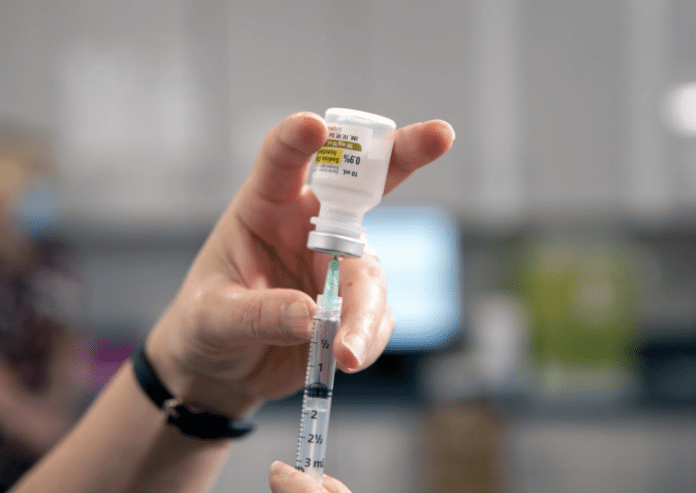COVID-19 vaccines for children aged five to 11 will start on Wednesday in some parts of Saskatchewan.
The provincial health authority announced on Nov. 22 that the first doses of the Pfizer vaccine will land in the province on Tuesday, Nov. 23 and appointments will start about 24 hours after that.
“It’s really exciting because not only can we protect our kids five to 11, but at the same time also save lives overall by putting a damper on the transmission of this virus in our community,” said Dr Tania Diener, medical health officer responsible for immunization and physician co-lead of SHA’s COVID-19 immunization campaign.
At the moment, only the Pfizer vaccine with a lower dosage is approved for children ages five to 11 but Moderna submitted an application for its version a week ago.
Both of the vaccines are mRNA-based and have been formulated at lower dosages for children.
Both require two doses for full protection and have been made with a different buffer that allows for longer storage periods.
Side effects are expected, just as in the doses for adults and older children, including soreness at the injection site, fatigue, headache, muscle pain and chills. They generally resolve within a day or two.
Initially, Pfizer doses for adults and older children were to be administered 21 days apart but that has now been changed to eight weeks for all.
“It shows so far a more robust and a more durable immune response. In other words, more effectiveness,” explained Diener.
Children under the age of 12 have the highest incidence of COVID disease in Canada right now, said Diener.
While children are at lower risk from the virus than adults, they are not immune and can become seriously ill, have complications and some have died.
“The fact that your kid has no chronic underlying condition does not guarantee that if your kid gets infected, they might fall seriously ill or get inflammation,” said Deiner. “There’s no guarantee that a healthy young kid, if infected, might not develop any of those complications.”
COVID disease can also have longer term impacts on children as well, including conditions such as myocarditis and pericarditis (heart inflammation) and multi-system inflammatory syndrome in which body parts such as heart, lungs, kidneys, brain, skin, eyes or other organs become inflamed.
The province will receive 112,000 doses, enough to vaccinate every child in the targeted age range.
The SHA along with the Northern Inter-Tribal Health Authority, pharmacies and some family doctors will all be part of the rollout.
“We anticipate pediatric vaccines to begin arriving at clinics in Saskatchewan in 24 to 48 hours after receiving the shipment from the federal government,” said Sheila Anderson, vaccine chief responsible for immunization campaign.
The larger centres will start immunizing as soon as Wednesday if they receive the vaccine on Tuesday.
“Some of our more rural and remote locations will start the pediatric vaccine delivery on Friday,” Anderson explained.
For the first two weeks, the focus will be on mass clinics where a large volume of vaccines can be dispersed and will run for extended hours and over the weekends.
Some of these will be in or near schools, some will be walk-ins and parents can also make group appointments for siblings.
Schools holding clinics for children will send notifications directly to parents.
Many will be bookable, with the ability to do so starting at 8:00 am on Tuesday and parents will be able to go in with their children.
Parents can find the locations and times of clinics or availability in their area via the SHA website or by following the SHA’s social media channels.
The province has no plans at the moment to extend restrictions placed on unvaccinated people to children in the new age ranges.
“We’ll have to see. Because children can’t make independent decisions and its based on parental consent, it’s very hard to keep children out of school or day care if their parents chose to not get them vaccinated,” said Dr. Shaqib Shahab, provincial chief medical officer of health.


